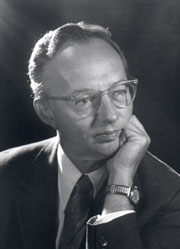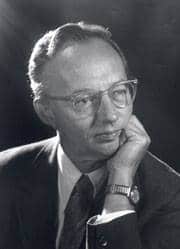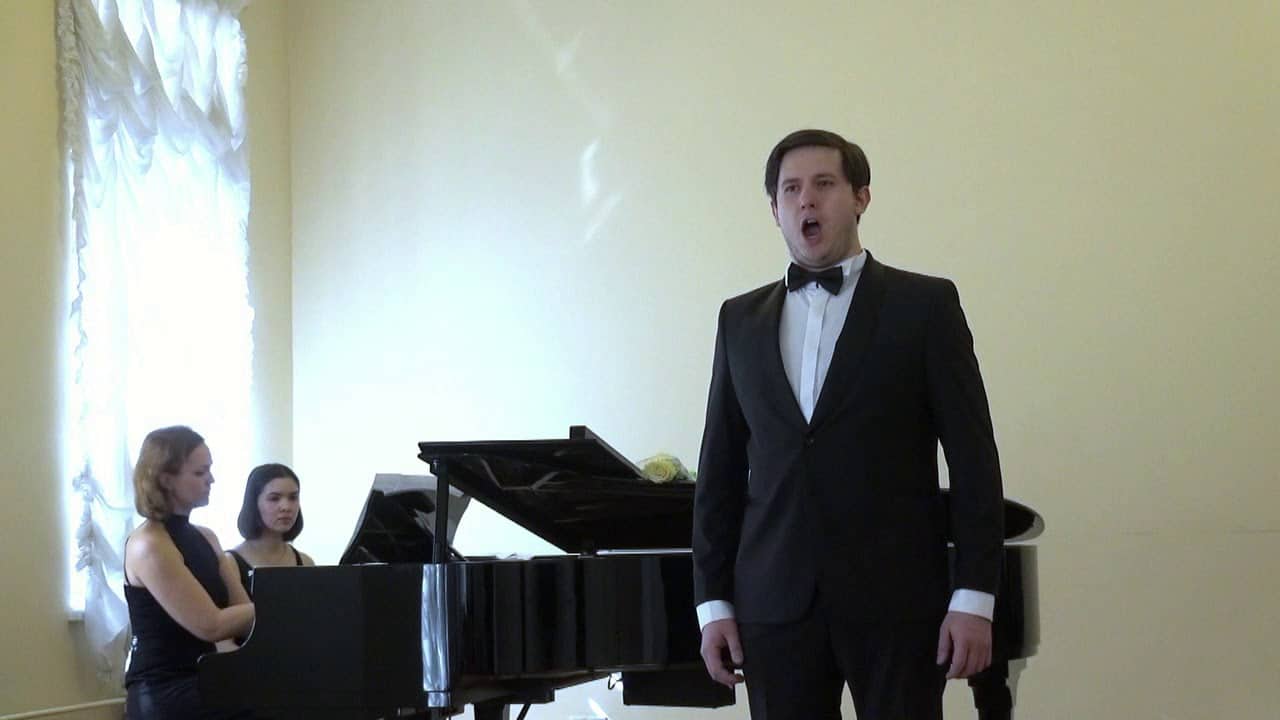Leslie Bassett: You’d have thought they’d perform a Pulitzer-winning piece…
mainFrom Bruce Duffie’s interview with the late composer Leslie Bassett, who died yesterday:
Bruce Duffie: First, let me ask you about winning the Pulitzer Prize. Has that had any great lasting effect on you or your composing?
 Leslie Bassett: It brought me a better salary at the University of Michigan, which is nice, but it didn’t bring as many performances of theVariations itself as you would have thought. You would have assumed that the orchestra piece that wins the Pulitzer Prize then would be used. In fact, my publisher did send the score around to a lot of orchestras somewhat later, because it wasn’t published right then. But it hasn’t had as many performances as you would have expected, and I found that disappointing. I talked with Michael Colgrass not too long ago, and he was complaining also that his Pulitzer Prize orchestra piece had not been played a second time, or at least not more than once, until it was done by Louisiana State University when he was there as guest composer two or three years ago. And he found this strange, a piece which presumably is considered good isn’t immediately grabbed by orchestras. I think there’s a certain amount of promotional things that have to be done, and if you have agents and publishers who are very aggressive in this regard and feel they can invest throwing away most of the scores, then I think maybe there’s some chance of it. But it’s a very touchy business. But it has made a lot of difference, in fact, because when you go to a town and you’re discussed, or comments are made by local newspapers, they all know it’s the Pulitzer Prize, so they give it coverage.
Leslie Bassett: It brought me a better salary at the University of Michigan, which is nice, but it didn’t bring as many performances of theVariations itself as you would have thought. You would have assumed that the orchestra piece that wins the Pulitzer Prize then would be used. In fact, my publisher did send the score around to a lot of orchestras somewhat later, because it wasn’t published right then. But it hasn’t had as many performances as you would have expected, and I found that disappointing. I talked with Michael Colgrass not too long ago, and he was complaining also that his Pulitzer Prize orchestra piece had not been played a second time, or at least not more than once, until it was done by Louisiana State University when he was there as guest composer two or three years ago. And he found this strange, a piece which presumably is considered good isn’t immediately grabbed by orchestras. I think there’s a certain amount of promotional things that have to be done, and if you have agents and publishers who are very aggressive in this regard and feel they can invest throwing away most of the scores, then I think maybe there’s some chance of it. But it’s a very touchy business. But it has made a lot of difference, in fact, because when you go to a town and you’re discussed, or comments are made by local newspapers, they all know it’s the Pulitzer Prize, so they give it coverage.
BD: How difficult is it to get second performances of anything, Pulitzer Prize or no?
LB: It depends, I suppose, on an awful lot of things. Young composers have an awful lot of trouble getting second performances if they don’t have a national name and if their piece was performed well by, let’s say, a good community orchestra or one of the minor major orchestras. It’s very hard to get a second performance. There are a lot of composers in the United States.
Read more here.






Excellent article. Bruce Duffie has a mine of stuff on his website that many simply don’t know about for many years. I have had the privilege of typing up many over the last year, had a bit of a break for the past couple of months only because of work here, and about to resume, so looking forward to so many more.
From Basset’s website:
“Mr. Bassett received the 1966 Pulitzer Prize in Music for his Variations for Orchestra, premiered in Rome in 1963 by the RAI Symphony Orchestra under Feruccio Scaglia, followed two years later by the Philadelphia Orchestra’s US premiere under Eugene Ormandy. Variations, which represented the U.S. at the 1966 International Rostrum for Composers in Paris, has been widely performed. A recording by the Zurich Radio Symphony Orchestra, conducted by Jonathan Sternberg for Composers Recordings (CRI 677), was hailed by Saturday Review as one of music’s finest classical releases.”
http://www.lesliebassett.com/Bio.htm
So, I don’t understand where he was complaining about.
This piece is in a Schoenbergian expressionist style but without the dense frustrations typical of Schoenberg’s later work, Bassett is much freer. There are beautiful and impressive things in it:
http://www.youtube.com/watch?v=8wxxRBdoYXM
But it is all in the tragic, spooky, post-apocalyptic mood that orchestras are not too keen to inflict upon their audiences, and understandably so given the problems orchestras face today. If you feel rather depressed by the state of the world, your promotion perspectives and your wife’s emotional inaccessibility, why going to a concert to have your mood reinforced? This is music for happy and luxurious times…
There is nothing original in the variations which seemingly go nowhere
except to echo past masters .
Originality is not an artistic category. A serial killer can be very original and often they are.
Especially for those that lack artistic originality.
And there’s nothing original in the above which seemingly goes nowhere except to echo past diatribes.
“But it is all in the tragic, spooky, post-apocalyptic mood that orchestras are not too keen to inflict upon their audiences, and understandably so given the problems orchestras face today. If you feel rather depressed by the state of the world, your promotion perspectives and your wife’s emotional inaccessibility, why going to a concert to have your mood reinforced? This is music for happy and luxurious times…”
Well said, John!
p.s. I knew Leslie Bassett and performed the Ann Arbor and NYC premieres of one of his pieces. And you know, I’m not sure it has been done since.
Nonsense